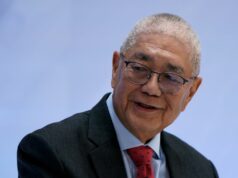Analysts: Gov’t should answer for failed economic programs

By Kyle Aristophere T. Atienza, Reporter
OPPOSITION groups should start coalescing to exact accountability for failed state economic programs, political analysts said, as Filipinos continue to be battered by rising prices.
“Filipinos are only able to hold governments to account if they organize accountability campaigns,” Joy G. Aceron, convenor-director of government watchdog G-Watch, said in a Facebook Messenger chat. “Hardly are accountability campaigns organized around economic issues.”
She noted that despite the Duterte government’s poor record in addressing inflation, “its trust and satisfaction rating remained high and its candidates in the past national elections still won.”
Presidential Communications Office Secretary Cheloy Velicaria-Garafil did not immediately reply to a Viber message seeking comment.
Inflation remained the top concern of most Filipinos aside from low wages, joblessness and poverty, according to a June poll by Pulse Asia Research, Inc.
Ms. Aceron said few civil society groups call out the government for failed macroeconomic policies. “Nowadays, collective action around these issues is thin and not robust enough to get the government to act decisively on the problem.”
Material and economic issues remain to be top issues for Filipinos during and in between elections, Robin Michael U. Garcia, who teaches political economy at the University of Asia and the Pacific, said via Messenger chat.
He said politicians get away with failed economic policies by blaming external factors such as the coronavirus pandemic. Former President Rodrigo R. Duterte managed to convince Filipinos that the pandemic, which led to joblessness, was beyond his control.
“Similarly, President Bongbong Marcos has successfully dodged blame for inflation,” Mr. Garcia said. “The second state of the nation address is important in deploying these narratives.”
Rising food prices drove Philippine inflation to a 14-year high of 8.7% in January. It has since cooled to 5.4% as of June, the slowest since April 2022.
Early in his term, Mr. Marcos Jr. vowed to protect the agriculture sector by limiting imports as much as possible.
He had cited the need for the Philippines to boost domestic industries amid global uncertainties, citing the impact of Russia’s invasion of Ukraine in February 2022 on food and energy security.
But that promise is yet to be fulfilled as the country boosts food imports in response to supply shortages and spiraling prices.
“Efforts to make government accountable for our economic problems have been weak because of weak political parties, a weak Legislature and a weak opposition and social movements,” Maria Ela L. Atienza, a political science professor at the University of the Philippines, said in a Viber message.
She said it is difficult for opposition groups to develop a mass base because their priorities are income and food.
“But bad governance, poor economic planning, lack of inclusive growth and graft and corruption are tied to the economy and poverty,” she said. “It takes time to link these issues together.”
Arjan P. Aguirre, who teaches political science at the Ateneo de Manila University, said patronage politics, which remains rampant locally, continues to weaken accountability efforts.
“Many people today are hungry, don’t have jobs, have meager resources, etc.,” he said in a Messenger chat. “They would easily support a politician who can give them these necessities.”
Filipinos also lack confidence in democratic institutions and processes and have been misled to think that authoritarian rule can solve their problems.
“For decades, they have relied on these institutions to make things work,” Mr. Aguirre said. “They care so much about getting access to what they need now so that most of the time, they are more concerned about short-term problems.
The analysts said pushing for accountability in various issues will need strategic and long-term efforts on the part of opposition forces.
Ms. Aceron said opposition forces should consolidate. “They need to start championing the issues most important to the people, build constituencies and find allies to hold the ruling party accountable for issues that remain unaddressed.”
The opposition can learn from the 2022 elections, Ms. Atienza said, noting that while grassroots support is important, opposition forces should also advocate alternative economic programs.



